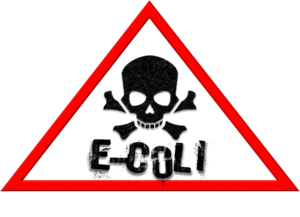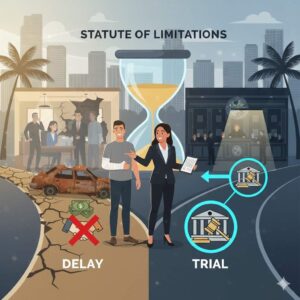You may be certain the lettuce in your dinner salad is responsible for your ailment; however, proving liability in food poisoning cases is more difficult than you think. After all, how do you know it was the lettuce? Isn’t it possible that the crowded restaurant contained a person with a virus (especially considering what is happening in the world today)? Did you eat anything between the time you left the restaurant and the time you became ill? How do you know it wasn’t the chicken? These are only a few of the examples that can become problematic in a food poisoning civil lawsuit. However, they are possible to win if you have the right evidence.
What is a Food Poisoning Case?

A food poisoning case is really a products liability case. It is about delivering a defective product (contaminated food) to a customer. The customer suffers damages (illness) as a result of eating the food. It doesn’t mean the food was literally “poisoned” with a chemical or other substance. It is more often the food became poisonous or harmful to those who would consume it. There are three ways businesses can be liable for their products.
3 Types of Product Liability
- Strict Product Liability: When businesses are held liable through strict product liability, it doesn’t necessarily mean they did anything malicious or negligent. It only means the product was bad and caused illness. It may never be known exactly why or how the product became dangerous. The only thing that matters is the product caused a harm.
- Breach of Warranty: In some cases, there is an implied warranty in food because people are expected to be able to consume it if they are served the food for purposes of eating. Florida does support breach of warranty claims.
- Negligence: Lastly, negligence is possible and often used if there is not a possibility for strict liability. This could mean the food was improperly stored or contaminated by poor business/cooking practices. It could happen when food is not stored at the correct temperature, or allowed to touch and contaminate other food items. It is basically determined the defendant should have acted differently in order to prevent the food contamination.
Examples of Failed Food Poisoning Cases
A recent food poisoning case out of a Disney World restaurant cited negligence after a family stated they ate lettuce wraps filled with bugs. They claimed to have went to the hospital multiple times as a result of accidentally eating the bugs because they didn’t see them. The judge didn’t think there was enough proof to blame the restaurant for the family’s illness and make them liable. He dismissed the case, giving the family the option to change their complaint or provide evidence of the negligence.
 Another 2018 case was filed against a caterer by wedding guests who all got ill after eating the catered food. The wedding guests originally lost the case because they could not prove it was specifically that food. The caterer’s lawyers argued some people ate the food and did not get sick. The wedding guests appealed and they won. The court decided the trial court held the burden of proof to a higher standard than the normal preponderance of evidence required in civil cases. In this case, the circumstantial evidence turned out to be enough, but only after an appeal.
Another 2018 case was filed against a caterer by wedding guests who all got ill after eating the catered food. The wedding guests originally lost the case because they could not prove it was specifically that food. The caterer’s lawyers argued some people ate the food and did not get sick. The wedding guests appealed and they won. The court decided the trial court held the burden of proof to a higher standard than the normal preponderance of evidence required in civil cases. In this case, the circumstantial evidence turned out to be enough, but only after an appeal.
Other potential cases are even more widespread but difficult to track down. Eight people recently became ill with Listeria in five different states. The bacteria turned out to be from eggs in a Georgia processing facility. The company has recalled the eggs, but one person died from the outbreak. Since it was possible to identify the source of the eggs containing the Listeria, the families of those affected by the Listeria have a viable claim.
Burden of Proof
Food poisoning cases are brought in civil court, where the burden of proof is a preponderance of evidence. To bring a claim, there still needs to be some admissible evidence a specific food from a specific place was responsible for your illness. There are a couple types of evidence which can help your case.
- Knowledge of the specific food that made you ill.
- Proof that specific food made you ill (medical results).
While these items are very clearly defined, they are more difficult to obtain. You cannot say it was “dinner” that made you ill. You have to know what part of dinner made you ill. The courts are not going to award damages based on best guesses.
Filing a Food Poisoning Suit
 When you go to file a suit, you must realize the plaintiff has the burden of proof in regard to both fault and damages. If you aren’t sure, contact a personal injury lawyer to discuss your case and determine whether your damages are worth going to the trouble of a court case. If you have hospital bills, it might be worth the trouble. Some successful food poisoning cases result in large damages due to long-term illness, extreme illness, or death.
When you go to file a suit, you must realize the plaintiff has the burden of proof in regard to both fault and damages. If you aren’t sure, contact a personal injury lawyer to discuss your case and determine whether your damages are worth going to the trouble of a court case. If you have hospital bills, it might be worth the trouble. Some successful food poisoning cases result in large damages due to long-term illness, extreme illness, or death.
Statute of Limitations
The statute of limitations in a food poisoning case is 4 years, unless there is a wrongful death. In cases of wrongful death, the statute of limitations is shortened to 2 years.
Contributory Negligence
It is hard to imagine contributory negligence in a food poisoning case, but it does exist in product liability cases. This happens when a defendant is only partially at fault, and the awards will be reduced to the amount of fault attributed to the defendant. This may be happen if a plaintiff recklessly over-consumed a product, or ate a product knowing there was a risk it could do harm.
How Many Plaintiffs?
Another thing to consider in a food poisoning case is how many were people were affected. If there are many potential plaintiffs, you may be able to file a suit together as a class action suit. This will greatly reduce the costs of the suit and increase the resources allocated to the case.
Hiring an Experienced Law Firm
When you hire a lawyer from a law firm, you want that law firm to have experience. Lawyers can be exceptional at any age, but they all benefit from the collective knowledge and support of an experienced firm. You should feel comfortable that your law firm is not overwhelmed by taking on your case and that they know how to handle it efficiently. Your lawyers should also be receptive to all of your damages and be willing to help you identify the value of your injuries, so you feel like your compensation is just and complete.
If you are looking to find a lawyer with experience AND with a strong firm for support, contact Kirshner, Groff, and Diaz for a consultation. Not only will you get information about how to continue with your products liability case, but you’ll get to speak to an actual lawyer right away. We pride ourselves in our service to our clients.



